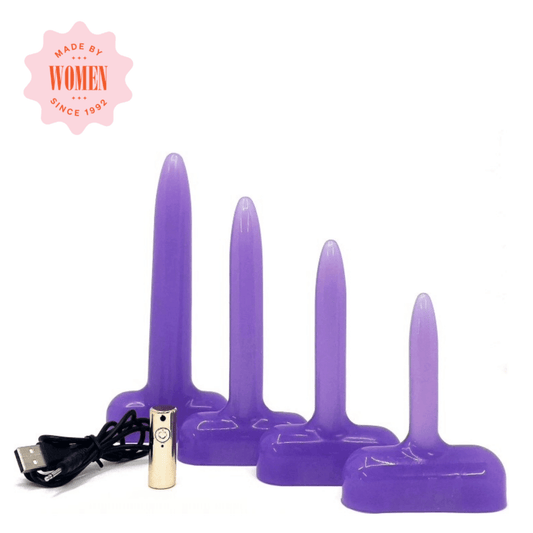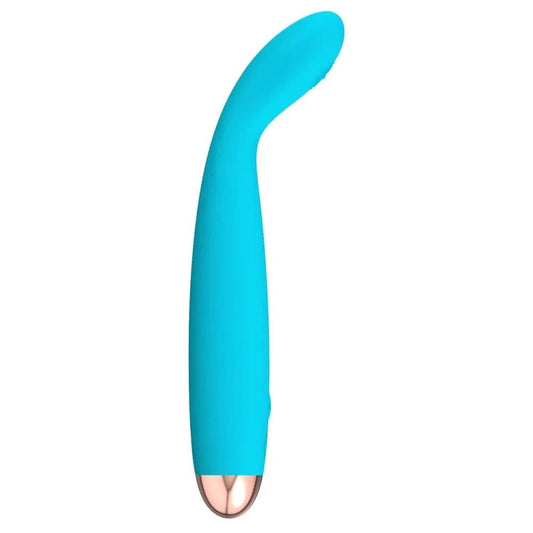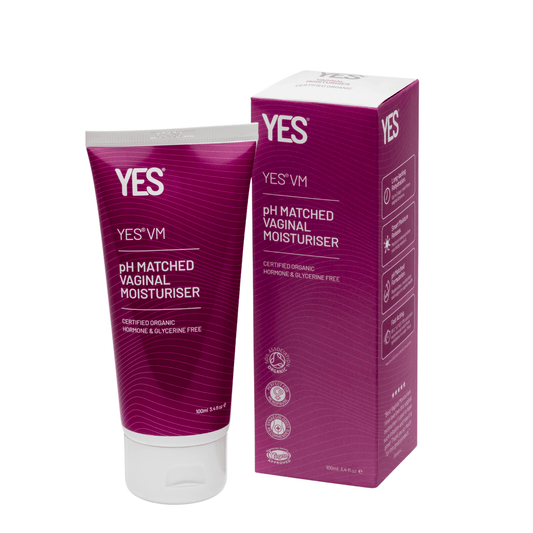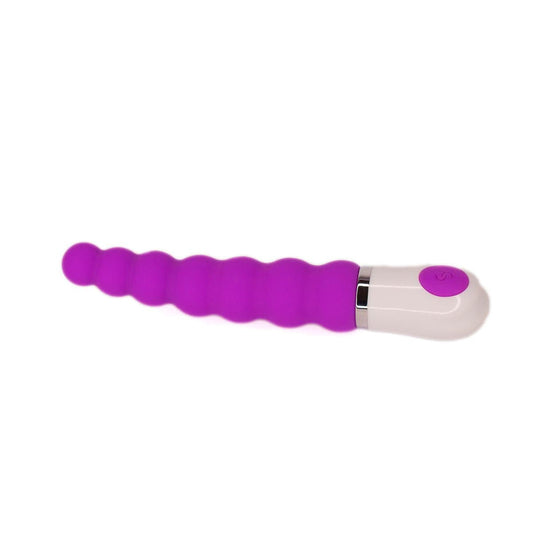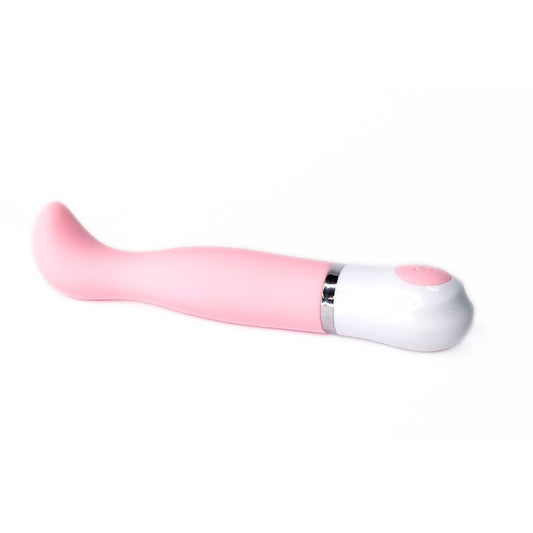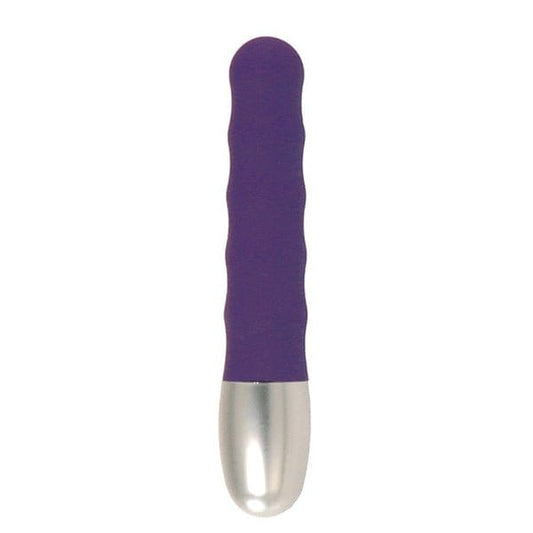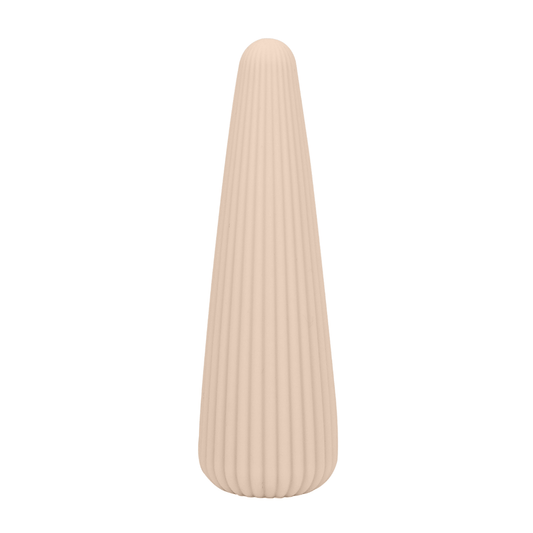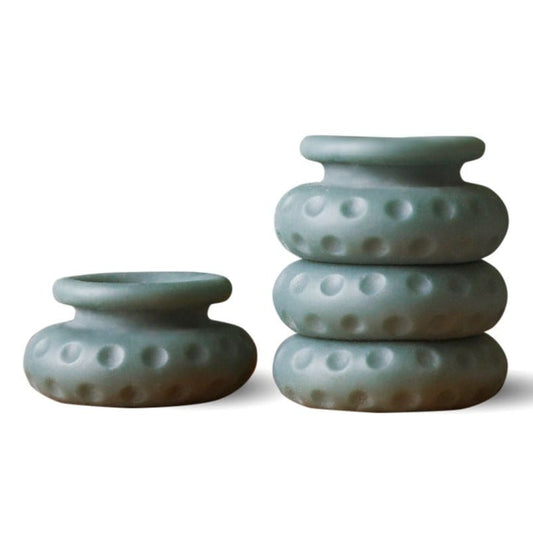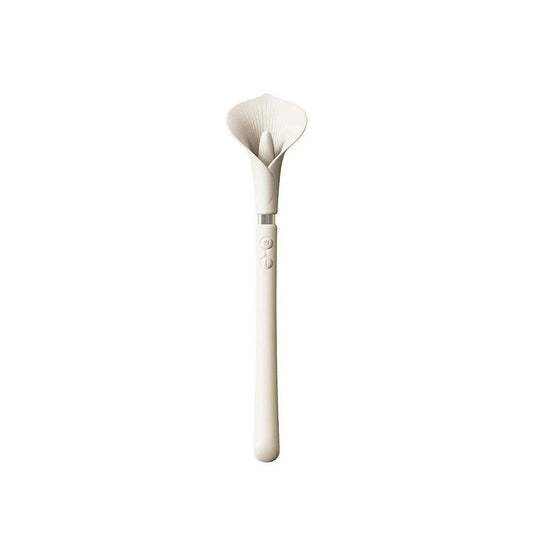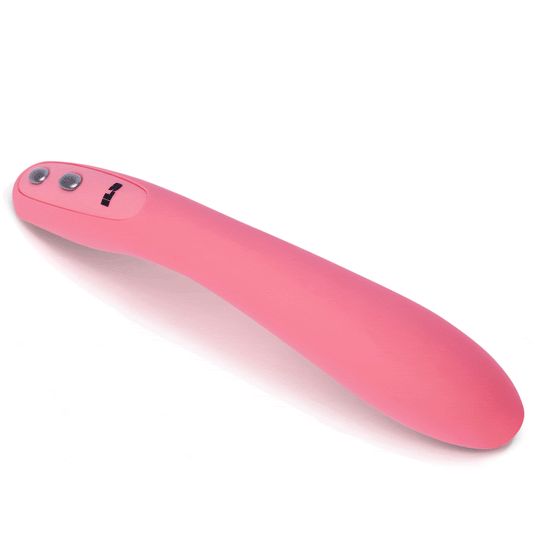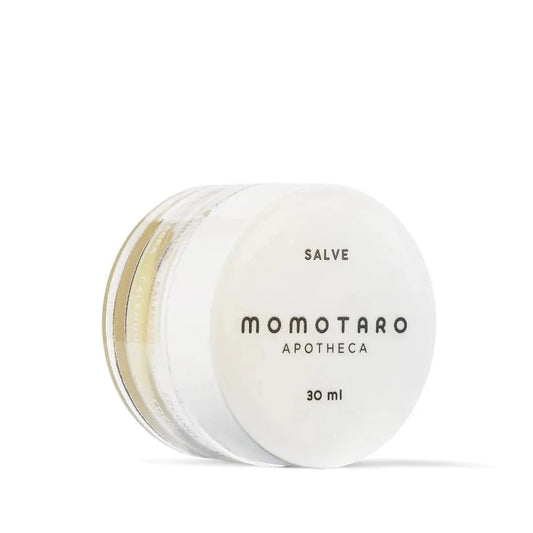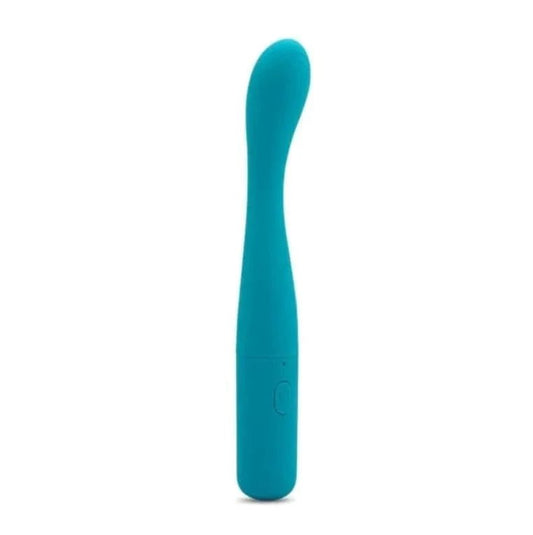The 15th of September was Vaginismus Awareness Day and we were delighted to have been joined by Lisa Mackenzie, co-founder of the Vaginismus Network, Sarah Berry, a psychosexual therapist and Hazel Mead, a sex-positive digital illustrator, for a panel discussion on living with Vaginismus. So many important topics were brought up, so if you were unable to join us or were there but would like a reminder, read on for a summary of what was covered.
Diagnosing Vaginismus
Vaginismus is a sexual condition that can affect anyone with a vagina whereby the pelvic muscles can tighten or contract to the point that inserting anything into the vagina is too painful. Although statistics state that 2 in every 1000 people with vaginas have vaginismus, this is only representative of those who come forward, and from our experience of customers over the years, the number is likely far higher. Despite this, a base-level awareness of Vaginismus and how to treat it is still lacking amongst medical professionals.
All our panelists voiced their frustration at initial experiences of seeking medical help, and like many members of the Vaginismus Network, felt dismissed with advice such as “take a bath to relax.” Fortunately, there are a number of doctors and therapists who are receptive and we definitely recommend contacting the Vaginismus Network to ask for any potential recommendations. Finding the right help for you can be difficult, but is so important.
Dating with Vaginismus
When it comes to dating, many people can feel like their Vaginismus is a burden they are placing on a potential partner. Lisa spoke about how she avoided dating for a long time, feeling defeated by her Vaginismus.
However, over the years realising Vaginismus does not define her, or her sex life, she finds it a lot easier to be upfront about it with new people. Practicing telling partners by telling friends and people you trust beforehand, can be a really helpful way to figure out how you are comfortable with articulating it. The explanation does not have to be particularly long and can be as simple as a short sentence or two. One suggestion that came up from the panel was; “Penetrative sex is difficult” with the possibility to elaborate further if needed or asked.
One of the most important points Lisa highlighted was “Do not apologise.” How a person reacts to your condition is a very helpful indicator of who they are as a person, and if they can’t move past it then the panel consensus is to move on from them.
Pleasurable Sex with Vaginismus
Enjoying sex with vaginismus is not always easy and can take a lot of time to figure out what works for you. While society places a lot of pressure on penetration, there is so much more to sex than a penis in a vagina (P-in-V).
Exploring all the different forms of play with yourself or with a partner, can not only help you connect with your body but is in itself a fulfilled sex life for many people. That being said, Sarah emphasised how the process of becoming comfortable with self-exploration can still be difficult for many, and taking things at your own pace is really important.
Pleasurable sex with Vaginismus is possible and this can include penetrative sex.
Having used dilators for a while, Hazel spoke about a recent positive sexual experience where, for the first time, she had enjoyed penetrative sex with a partner. Being completely certain it was her own choice and not a response to external pressure, as well as maintaining full control during was key to the experience. Feeling you should have penetrative sex is never likely to work.
Dilating
Following from Hazel’s experience, our guests were keen to know more about dilating. At Sh! we have our very own vibrating dilator set that was specifically designed in response to the “blunt” options available on the NHS. Made of body-safe silicone with tapered tips, many customers have had a lot of success with our dilators. We have just launched a Pay It Forward scheme for the dilators, whereby people can donate to help us provide the full set to those on a limited income.
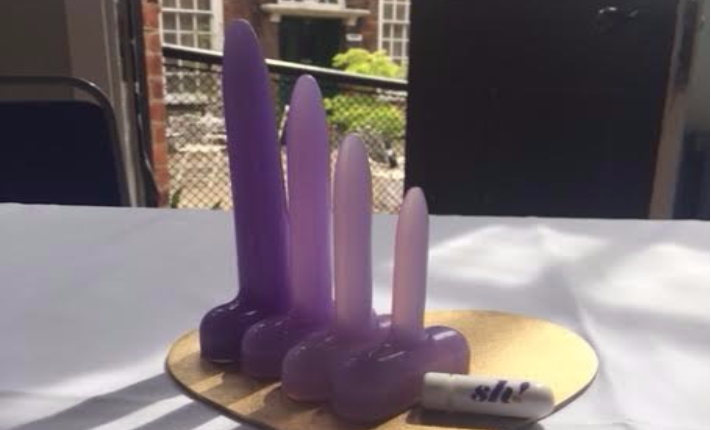
When dilating, lube is a must, and be sure that it is water-based, as silicone lube is not particularly vagina friendly, plus cannot be used with silicone toys.
Dilating can seem quite a daunting exercise, so finding ways to make it more pleasurable can be a really effective way of reframing the experience; “Vagina Time” was one phrase used by the panel.
Some useful tips included incorporating other toys like a clitoral vibrator or a butt plug, focussing on arousal and not starting with dilating straight away can all hugely minimise anxiety or stress. The process of dilating can take time, and even with some fun add-ons it is unlikely to always be pleasurable, so don’t blame yourself if you don’t fulfill a certain expectation.
There is no deadline with dilating, and while having goals can be helpful, being kind to yourself should be the number one priority.
Living with Vaginismus can be a really frustrating and isolating experience. This panel event, as well as the meet-ups run by the Vaginismus Network, are brilliant ways people can learn and share their experiences. To learn about more upcoming events and be part of the movement raising awareness and removing the stigma, visit the Vaginismus Network.
Thank you so much to our panelists and to all our guests and their questions. It was such a wonderful way to celebrate Vaginismus Awareness Day!












